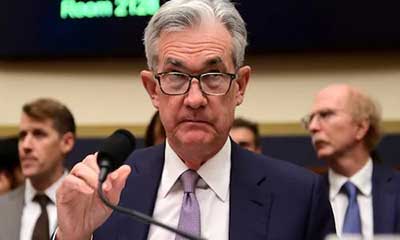Relevance: GS-3: Indian Economy and issues relating to planning, mobilization, of resources, growth, development and employment; Effects of liberalization on the economy; Effect of policies and politics of developed and developing countries on India’s interests.
Key Phrases: Tapering down, policy tightening, bloated balance sheet, surging inflation, cost of finances, carry trade, global sell-off, Indian G-secs, FPI Outflows, benchmark lending rate, reverse repo rate, rupee decline.
Why in News?
- In a sharp policy shift, the US Federal Reserve said it would end its pandemic-era bond purchases in March and raise interest rates thrice next year to cope with surging inflation.
Keypoints:
- The US Federal Reserve was at the forefront in preventing a global
recession when Covid-19 hit the world in 2020.
- The Fed went all out to support the economy, the balance sheet of the US Federal Reserve – has more than doubled from $4.1 trillion in March 2020 to $8.6 trillion now.
- A bloated balance sheet means an equivalent increase in the government
debt.
- With the economy getting back on its feet and labour market back to pre-pandemic levels, the Fed is beginning to move towards trimming its balance sheet back, to size.
- The other critical reason for monetary tightening is the impact of the
surplus funds in the economy on inflation.
- US inflation as measured by Personal Consumption Expenditure (PCE) index hit multi-decade high at 5% in October.
- This is far above Fed’s tolerance of 2 per cent.
- The Federal Reserve Board members are now projecting that the Fed
Funds rate will be in the range of 0.6 to 0.9 per cent in 2022 and 1.4 to
1.9 per cent in 2023.
- The rate is currently 0.1 per cent.
- The projections in September indicated that rate will be between 0.1 to 0.4 per cent in 2022.
- Therefore, the Board members are all veering towards aggressive rate hikes over the next two years.
Impact on emerging markets like India:
- The reduction in funds infused by the Fed and increase in fed funds rate will impact the availability and cost of overseas finance for Indian companies.
- The indirect impact is of foreign portfolio flows in to Indian equity
and bond markets.
- Global investors borrow in currencies with zero or low interest rates to invest in assets across the world.
- This is called carry trade, which is partly responsible for the raging rally in stocks in India and elsewhere.
- As rates begin moving up, the carry trade can reverse causing global sell-off.
- Actions of Fed will definitely influence the RBI.
- If interest rates in US increase, the spread between US and Indian government bonds will narrow causing global funds to pull money out of Indian G-secs.
- RBI will therefore have to raise interest rates in India to prevent FPI outflows from Indian bond market.
- The move will impact rupee too:
- The US dollar will strengthen further as interest rates of dollar denominated securities begin moving higher. This will make rupee decline.
- If FPIs continue to pull money out of stock and bond markets that will weaken the rupee too.
- If global risk aversion increases, money is typically pulled out of riskier assets such as emerging market assets in to safe havens such as gold and US treasury instruments, impacting rupee.
Way Forward:
- Although the Reserve Bank of India (RBI) is yet to begin policy normalisation, interest rates are slowly showing signs of rising in the financial system, in line with the global trend. Only recently, State Bank of India (SBI) has raised the benchmark lending rate, or base rate, by 10 bps.
- It is also to be noted that, not all central banks think alike. While Fed is tightening, the European Central Bank and the Bank of Japan are likely to continue easy monetary policy, thus mitigating the Fed’s actions somewhat.
Conclusion:
- Any move by RBI will be contingent on the impact of Omicron on economic activity. If the growth momentum remains durable, then RBI could choose to hike the reverse repo rate.
Source: The Hindu BL
Mains Question:
Q. Emerging markets like India remain vulnerable to US Fed tightening cycle. Comment.









